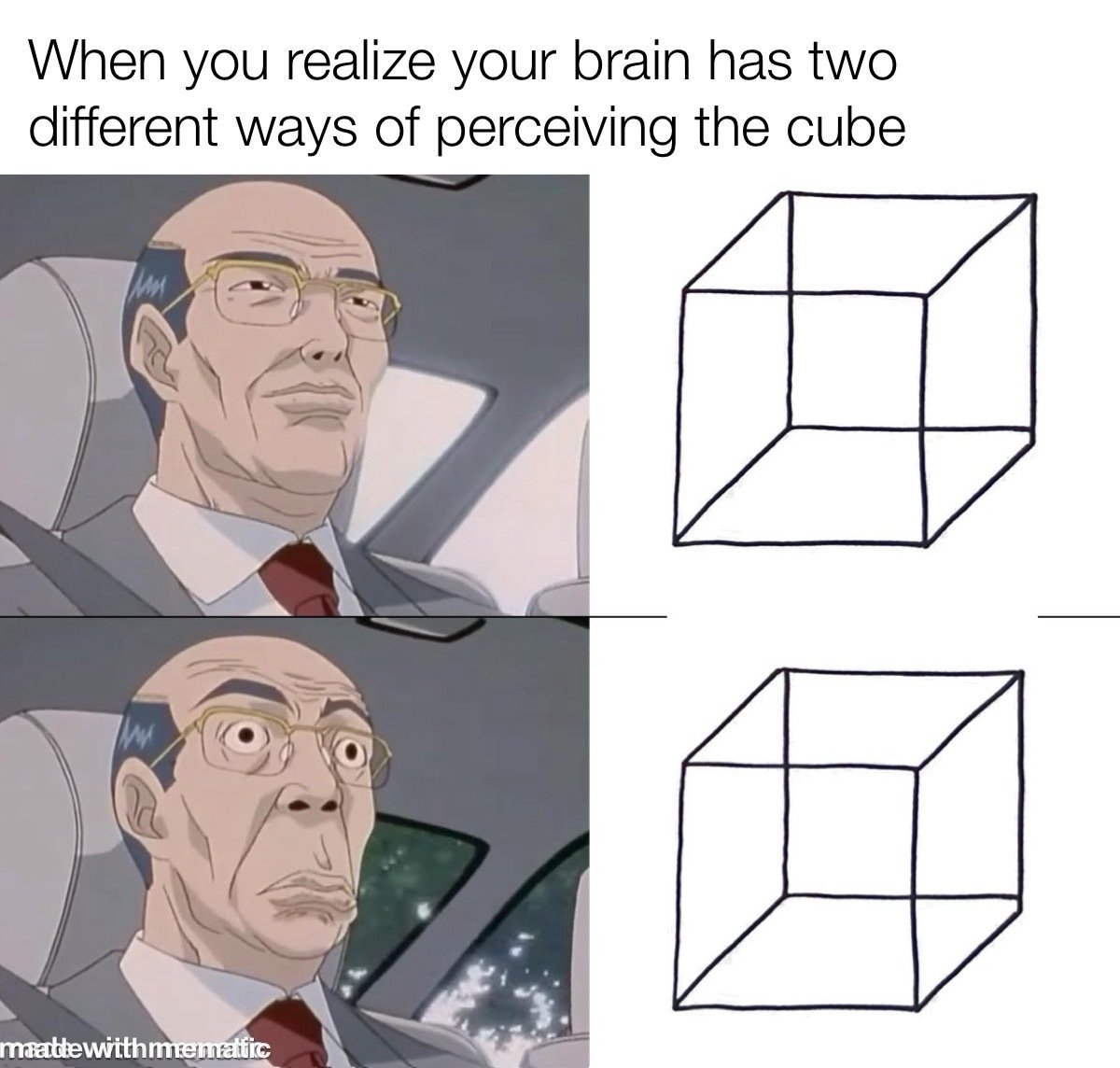this post was submitted on 21 Jan 2024
375 points (96.1% liked)
Memes
49952 readers
877 users here now
Rules:
- Be civil and nice.
- Try not to excessively repost, as a rule of thumb, wait at least 2 months to do it if you have to.
founded 6 years ago
MODERATORS
you are viewing a single comment's thread
view the rest of the comments
view the rest of the comments

A trick for easily shifting your perception:
First imagine the cube is sitting on the ground and you are looking down at it from slightly above and to the right (this is the way most people will initially perceive it, because it is the most familiar).
Then imagine the cube is instead attached to a wall or perhaps a ceiling and you are looking up at it from slightly below and to the left.
I've always seen #2 until you mentioned the top-down perspective
Ooh your explanation is the brain hack that finally worked for me. Thank you.
Or better yet - this helped me more because I couldn't get what you were saying until I saw it - is that you can think of either one of two faces that the cube can sit on. Before I explain which faces I am talking of, I have to note that a cube face can be described by its diagonal, which is what I have to do to explain this in words and the second one is that in a drawing of a cube there are six peripheral intersection points(three to the right and three to the left) and two inside points a right one and a left one. So these two faces the cube can sit on are:
The first is the face whose diagonal starts from the bottom left peripheral point and reaches the right inside point
Then the second face is the one that spans from the left bottom peripheral point until the right middle peripheral point.
This helps me change perspective instantly.